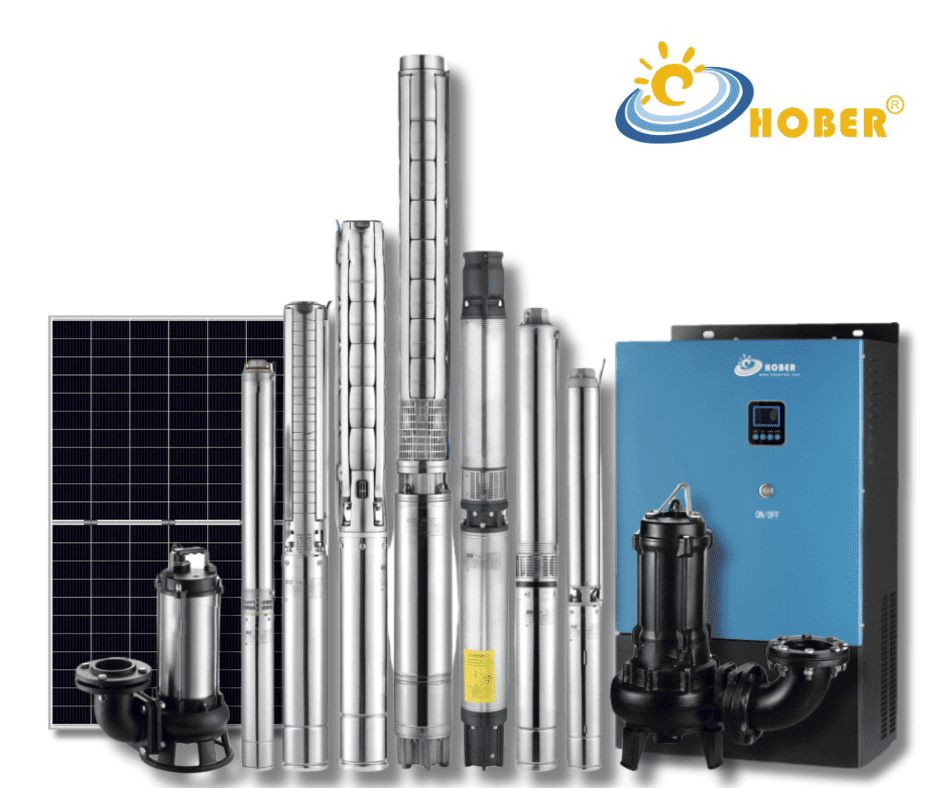
Solar water pumps are revolutionizing irrigation, offering efficient, sustainable solutions for various agricultural needs. With a focus on performance, durability, and cost-effectiveness, these pumps are changing how we access water, even in remote locations. Whether you’re installing a deep-well pump or supplying water to high-altitude fields, a solar water pump could be the ideal solution.
Solar Water Pumps: The Basics
Solar water pumps provide an energy-efficient, sustainable solution for irrigation by harnessing the sun’s energy. These pumps are cost-effective in the long term, requiring no ongoing energy costs. They are ideal for deep wells, high-altitude applications, and livestock watering, offering a range of models to suit different water flow and pressure requirements. With integrated MPPT technology, solar water pumps ensure optimal performance even on cloudy days, making them a reliable choice for agricultural operations.
Are Solar Water Pumps Any Good?
Solar water pumps are an excellent choice for many applications, especially in areas where electricity access is limited or unreliable. Their benefits include:
- Free energy: The sun is a renewable resource, meaning you don’t pay for energy.
- Low maintenance: Solar pumps typically require little upkeep once installed.
- Cost savings: Over time, you’ll save on electricity bills, making them more cost-effective than traditional pumps.
However, they do have limitations, such as dependency on sunlight. Their performance can decrease on cloudy days, or in shaded areas. Despite this, advances in technology, like Maximum Power Point Tracking (MPPT), help maximize efficiency even in less-than-ideal conditions.
Can I Run a Water Pump Directly from a Solar Panel?
Yes, you can power a water pump directly from a solar panel, provided you have the correct system size and good sunlight. This setup eliminates the need for batteries, making it simpler and more cost-effective. The solar panels convert sunlight into electricity, powering the pump as long as there is adequate light.
For solar-powered irrigation, direct connection setups are particularly useful in areas where sunlight is consistent, allowing you to operate pumps during the day without storage for nighttime use.
What Is the Weakness of a Solar Water Pump?
While solar water pumps are eco-friendly and highly efficient, they do have some weaknesses:
- Weather dependency: The main limitation of solar pumps is their reliance on sunlight. On cloudy or rainy days, their performance can suffer, especially if you’re not using a battery storage system.
- Initial cost: Though long-term savings are substantial, the initial investment in solar panels and pump systems can be higher compared to conventional pumps.
Still, the benefits outweigh the downsides, particularly for agricultural applications where energy savings and sustainability are crucial.
What Is the Best Water Pump for Irrigation?
When it comes to irrigation, the right pump depends on your specific needs. Here’s a breakdown:
- Centrifugal pumps are ideal for low- to medium-flow applications, such as small-scale irrigation or garden watering.
- Multistage pumps, on the other hand, are better suited for high-pressure irrigation systems, especially in larger farms or industrial applications.
For solar irrigation, both pump types are available in solar-powered versions, providing versatility in terms of flow rates and pressure.
What Is the Best Solar Water Pump for Deep Wells?
If you’re considering a solar water pump for deep wells, you’ll need a pump that can handle high head heights and provide consistent water flow. Solar pumps with MPPT technology are ideal for this purpose, as they ensure maximum efficiency in varying sunlight conditions.
For example, models like the HBPF-110-1500-45-17 can pump up to 45 m³/h, with a head of 17 meters, making them perfect for deep-well irrigation or high-altitude applications. Always ensure your pump is rated for the depth of your well.
How Much Does a Solar Irrigation Water Pump Cost?
The cost of a solar water pump for irrigation depends on several factors:
- Size and capacity: Smaller pumps (like those suited for garden irrigation) can be as affordable as $200–$500, while larger, industrial-grade pumps can range from $1,500 to $5,000.
- Installation and maintenance: Installation costs vary based on the complexity of the system and your location. Regular maintenance can help extend the pump’s lifespan and efficiency.
However, once installed, solar pumps eliminate ongoing electricity costs, providing a cost-effective long-term solution for irrigation.
What Should I Consider When Installing a Solar Water Pump for Irrigation?
When installing a solar water pump for irrigation, keep these factors in mind:
- Solar panel placement: Ensure your panels are positioned to receive maximum sunlight during the day.
- System sizing: Match the pump’s power requirements with the solar panel array to ensure consistent operation.
- Well depth: For deep wells, ensure the pump is rated for the required depth and head height.
- Battery storage: If you need to operate the pump during cloudy weather or at night, consider adding a battery storage system.
Can a Solar Pump Be Used for Livestock Watering?
Yes, solar water pumps are perfect for livestock watering! They can consistently supply water to cattle troughs or remote watering systems. With corrosion-resistant materials like 316 stainless steel, these pumps can handle the demands of animal farms and remain durable in harsh conditions.
For livestock systems, you’ll need to consider the flow rate and distance to ensure that your pump can handle the daily water requirements of your animals.
Summary
Solar water pumps offer efficient, sustainable solutions for a variety of agricultural and industrial applications. Whether you’re using them for deep-well irrigation, livestock watering, or high-altitude water supply, their durability, low operating cost, and adaptability to various environments make them an excellent investment.
By understanding the pump’s capabilities and limitations, you can select the right model for your needs. If you have any more questions or would like further guidance on selecting a solar water pump, feel free to leave a comment or follow our blog for more helpful content!
